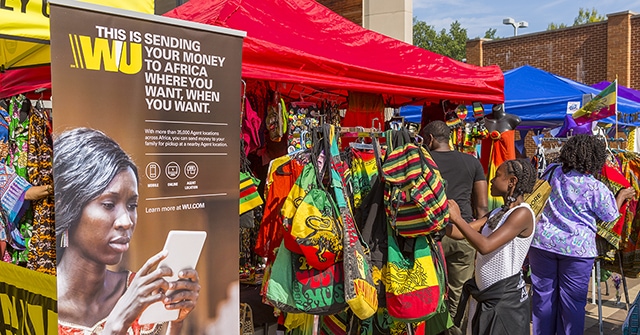Remittances are now a half-trillion dollar market and fintechs and technology companies are getting in on the action.

With $79 billion cross-border remittances in 2018, India emerged as a top market for foreign and domestic banks as well as technology-based remittance companies.Remittances toIndia grew by 14% from 2017 to 2018 compared to the international average of 9.6%. More than 50% of remittances to India originated from the Middle East(UAE, Saudi Arabia, Kuwait, Qatar) as non-resident Indians working abroad in more than 47 countries sent money home to their families.
| Country | ($ Bil.) |
| India | 78.6 |
| China | 67.4 |
| Mexico | 35.7 |
| Philippines | 33.8 |
| Egypt | 28.9 |
| Nigeria | 24.3 |
| Pakistan | 21.0 |
| Vietnam | 15.9 |
| Bangladesh | 15.5 |
| Ukraine | 14.4 |
| Region | (%) |
| Global Average | 6.9 |
| South Asia | 5.0 |
| Latin America and the Caribbean | 6.2 |
| Europe and Central Asia | 6.7 |
| East Asia and Pacific | 7.2 |
| Middle East and North Africa | 6.8 |
| Sub-Saharan Africa | 9.3 |
| Provider | (%) |
| Post Office | 5.5 |
| Money Transfer Operator (MTO) | 6.2 |
| MTO/Post Office | 7.7 |
| Bank | 10.2 |
| Data: Migration and Development Brief, World Bank | |
India at the top of the global remittance recipient list was followed by China ($67 billion), Mexico ($37 billion), Philippines ($34 billion) and Egypt ($29 billion)according to the World Bank’s latestMigration and Development Brief.
Combined, the top five emerging market countries accounted for a whopping $244 billion out of a total $689 billion in global remittances reported last year. About $529 billion in global remittances went to low and middle-income countries, making remittances thelargest source of external financing for these nations (excluding China).
These global cash flows have created lucrative opportunities not only for banks and traditional companies, but also financial technology firms. Technology-based remittance companieslike TransferWise, World Remit, Azimo (London), Abra (California), Remitly (Seattle), Instarem, Fastacash (Singapore) have sprung upin the past 7–8 years across many regionsto challenge traditional money transfer organizations like Western Union, Ria and MoneyGram for market share.
“Technology is a game changerthat could bring about pruning of costs for financial technology companies entering into remittances space that’s fast expanding in emerging markets like India,” said Prof Ashish Das, a professor at Mumbai-based Indian Institute of Technology who tracks banking and consumer issues.
Das added, “RBI (India’s central bank) has given freedom to banks for fixing transaction charges on cross-border remittances. Competition from private players is bound to drive down the costs associated with remittances.”
Publicly available data points to the fact that banks as remittance services providers (RSP) internationally have become expensive, with transaction fees running as high as 10.90%.
At the same time, averageremittance fees have plunged to 6.94% in the first quarter of 2019 according to the World Bank’s March 2019 reportRemittance Prices Worldwide. Most private RSPs have reportedly kept transaction costs in the 4.57%–9.25% range, attracting the business ofsmall-transaction remitters.Furthermore, remittance fees vary by region. South Asia boasts the lowest remittance fees in the world (averaging 5.04%) while underbankedSub-Saharan Africa averages the highest(9.04%).
Professor Aman Agarwal, Director at Indian Institute of Finance (IIF) said, “New financial technology companies with requisite approvals have the wherewithal to challenge traditional banks in terms of reducing remittance costs as well as providing competitive currency conversion rates.”
“Seeing the huge potential, we have seen that some of the banks in India have started special services for remittance as part of their fintech innovation drive within the bank framework given their overseas operations. It’s important to be noted that any framework that bypasses the RBI transfer system is illegal and not legitimate,” Prof Agarwal pointed out.
The United Nations also wants to reduce the cost of remittances. “The high costs of money transfers reduce the benefits of migration,” said Dilip Ratha, the World Bank report’s lead author.
“Renegotiating exclusive partnerships and letting new players operate through national post offices, banks and telecom companies will increase competition and lower remittance prices,” Ratha added.



